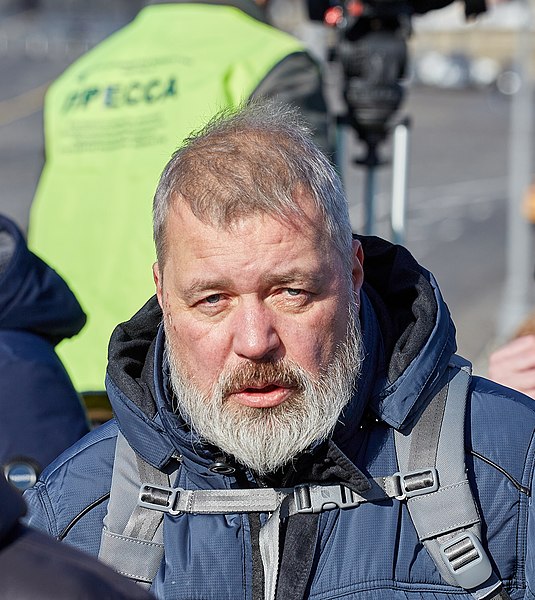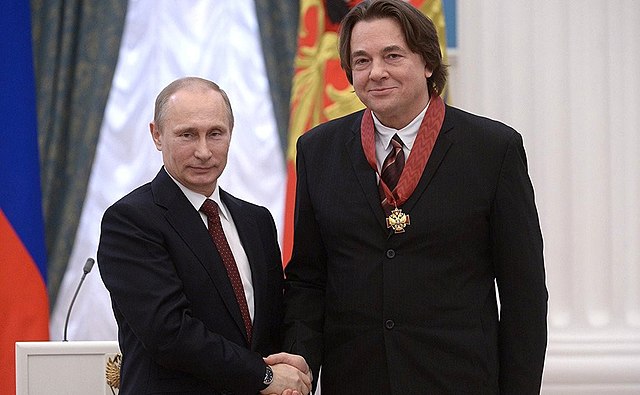Russian foreign agent law
The Russian foreign agent law requires anyone who receives support from outside Russia or is under influence from outside Russia to register and declare themselves as foreign agents. Once registered, they are subject to additional audits and are obliged to mark all their publications with a 24-word disclaimer saying that they are being distributed by a "foreign agent". The phrase "foreign agent" in Russian has strong associations with Cold War-era espionage. The law has been heavily criticized both in Russia and internationally as violating human rights, and as a tool used to suppress civil society and press freedom within Russia, particularly groups opposed to Vladimir Putin.
Picket against Foreign Agents Law, 6 November 2021, Yekaterinburg
Image: Lev Ponomaryov 2011
Image: Dmitry Muratov in 2021
Image: Boris Nemtsov's March (Mikhail Kasyanov)
The current government of Russia maintains laws and practices that make it difficult for directors of mass-media outlets to carry out independent policies. These laws and practices also hinder the ability of journalists to access sources of information and to work without outside pressure. Media inside Russia includes television and radio channels, periodicals, and Internet media, which according to the laws of the Russian Federation may be either state or private property.
Putin and Konstantin Ernst, chief of Russia's main state-controlled TV station Channel One. About 85% of Russians get most of their information from Russian state media.





